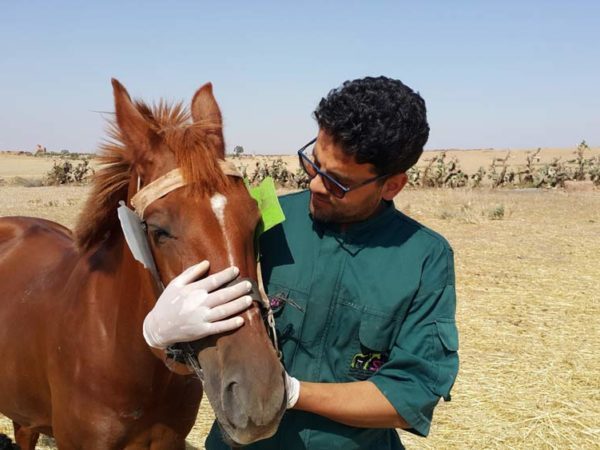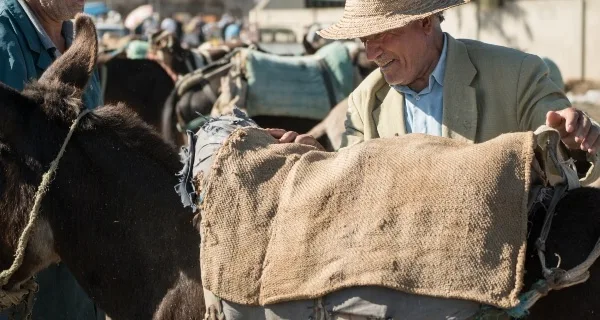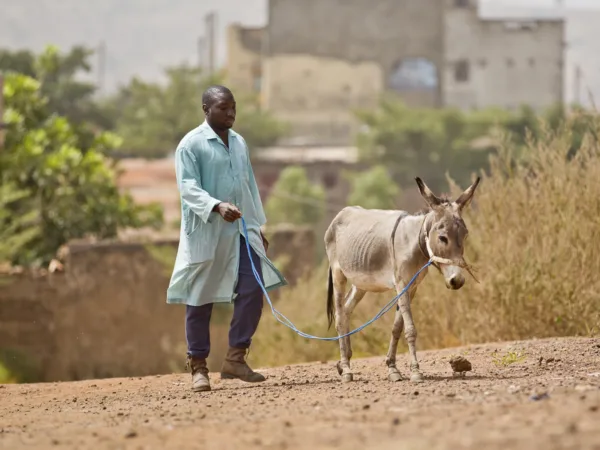Sarie bounces back
Kasserine lies in a dry and impoverished part of rural Tunisia, where many families live a hand-to-mouth existence and working animals are an integral part of survival. Sarie is one of these animals, providing financial support to her family through her labour.
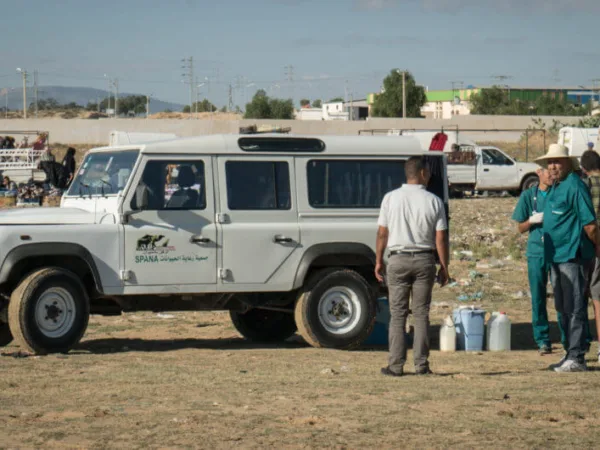
63-year-old Mohammad relies on Sarie (which means ‘Speedy’ in Arabic) not only to support his own farm work but also to help neighbours. He rents her out for a day’s work, and that income helps fund his grandchildren’s education.
One winter morning, Mohammad entered Sarie’s enclosure to find her rolling around on the floor in distress and injuring herself. He could tell that she was in agony and thanks to previous SPANA welfare training, recognised the symptoms as possible colic. Colic is abdominal pain which can be caused by a blockage in the digestive passage. Without intervention, colic can sometimes cause death.
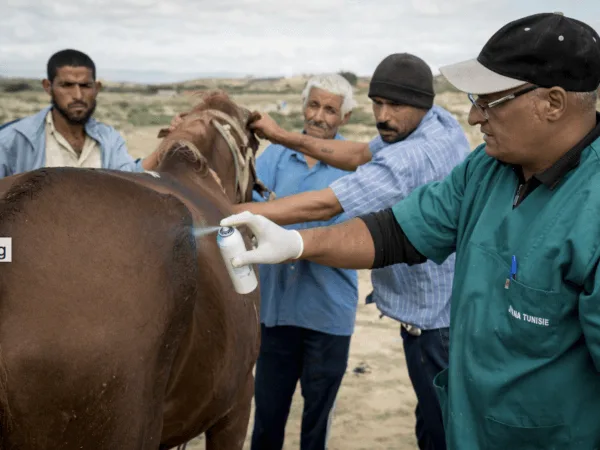
Mohammad had learnt that water and laxatives can help with some forms of colic so he gave this treatment to Sarie and fortunately she quickly improved. He kept watch over her to make sure she didn’t injure herself while rolling in her pen.
The day after, Sarie passed the blockage but Mohammad and his grandson, Ali, brought her to the weekly SPANA mobile clinic at the souk for her to be checked over and for her wounds to be treated.
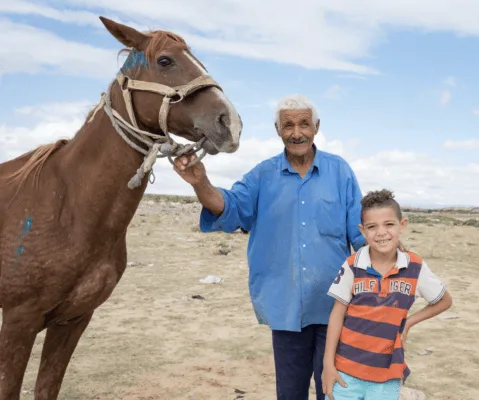
SPANA vets Dr Shukri and Dr Ali set to work cleaning and applying a blue antiseptic spray to the sensitive wounds on Sarie’s legs and joints. They also gave Sarie an antiparasitic injection and advised Mohammad to bring her back the following week so that the SPANA vets could check in on Sarie’s condition. The team recommended feeding Sarie good quality feed to build up her strength, keeping Sarie from working for at least a few weeks, and removing plastic and rubbish from her feeding area as the obstructions are often caused by accidentally eating plastic bags.
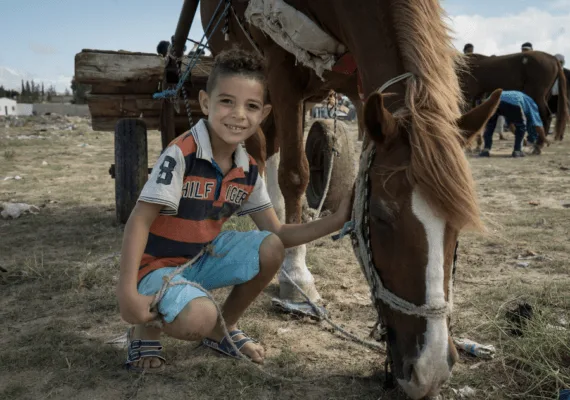
Mohammad and his grandson were delighted to have received treatment and advice from SPANA and knew that Sarie would soon make a complete recovery.
Mohammad said, ‘Sarie is so important and so well loved in our big family. Everyone will be so pleased that she is healthy again.’
SPANA Tunisia is composed of four teams of vets who regularly visit rural areas with their mobile clinics. For tens of thousands of working animals like Sarie right across Tunisia, who would otherwise be too far from major cities to receive veterinary care, SPANA’s clinics are a lifeline.

